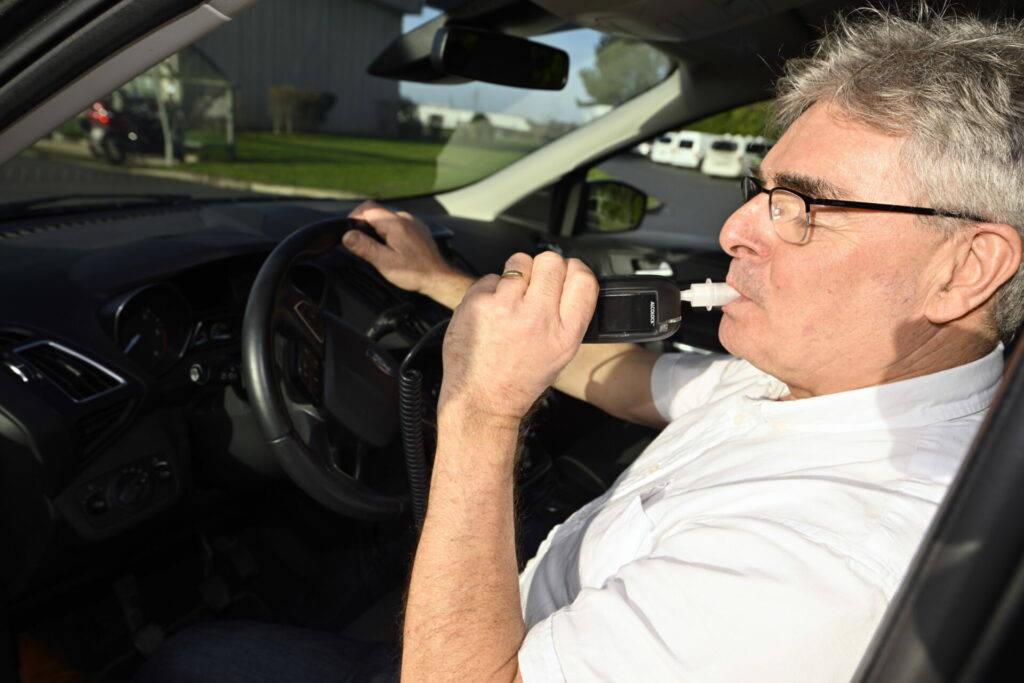Almost 1,200 drivers in Belgium are currently driving a vehicle that has been fitted with an alcohol interlock after being convicted of driving under influence. A recent survey confirmed their effectiveness.
Alcohol interlocks aim to help improve traffic safety by preventing drivers from driving with alcohol concentrations above certain limits after they have been convicted of drink-driving. In Belgium, men are overrepresented in the group of those sentenced to an alcohol interlock (86%), while in one in four cases, it involves drivers under the age of 35.
A recent survey by Vias traffic safety institute among 708 drivers sentenced to such a lock found the system is not only reliable but also causes drivers to modify their behaviour. "Four years after the law came into force, we can now confirm that the results are positive," Federal Minister for Mobility Georges Gilkinet.
The alcohol interlock is directly connected to a vehicle's ignition system and temporarily interrupts signals from the starter until the driver blows into the attached mouthpiece and provides a sample (the maximum value is set at 0.2 ‰, while the punishable legal value is 0.5 ‰). The system requires a second test around 20 minutes after leaving.
Succes, but also continued obstacles
Vias' survey found that in just one in 2,500 times of using this system (0.04%), drivers attempted fraud, meaning they were able to start the vehicle but tested positive in the later test. "We assume that in those cases, another sober person blew to start the car," Vias noted.
Meanwhile, just 2% of all people test positive — the majority of these are young people aged between 18 and 24 — highlighting that the device's installation raises awareness in a large majority of convicted drivers, causing them to modify their behaviour.
In the Netherlands, a study showed that even after the lock was removed, the recidivism rate of those convicted with an alcohol interlock was three times lower than for drivers who received a conventional penalty. "So even after the programme ends, the alcohol interlock has an effect," Vias noted.
The study does point out some major obstacles, such as the lack of flexibility to impose the device. Some judges are reluctant to sentence offenders to the device, as they see it as "limiting their ability to choose the most appropriate punishment for the specific context of each offence."
Related News
- Road accidents in Belgium twice as common at New Year's
- Over one in five drivers in Brussels find ways to avoid alcohol checks
- Find a BOB: The weekend against drink-driving
The total cost of the compulsory lock — this ranges between €3,500 and €4,000 for the installation and the accompanying help programme for one year — is also a factor that prevents judges from sentencing an offender to an alcohol interlock.
Gilkinet recognised there are still "obstacles to greater use of this safety tool," and said he would try to remove these. An upcoming European regulation requiring all new vehicle models to be equipped with a standardised interface that facilitates the installation of an alcolock should reduce installation costs.
Vias stressed that it is worth ensuring the system improves in Belgium. "If no one in Belgium drove with a blood-alcohol level of 0.5 ‰ or more, 115 deaths would be avoided every year," it concluded.

